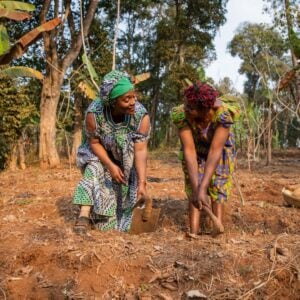The Board of Directors of the African Development Bank (AfDB) has approved $16.38 million in additional financing for the Borana Resilient Water Development for Improved Livelihoods Programme II, further strengthening Ethiopia’s efforts to build climate-resilient water infrastructure in the drought-prone Borana zone of the Oromia region. The funding includes a $9.38 million grant from the Climate Action Window of the African Development Fund and $7 million from the Rome Process/Mattei Plan Financing Facility.
The additional resources will help expand solar-powered water systems and extend the region’s existing water distribution network by nearly 95 kilometres. This development will provide clean and reliable water access to around 23,000 people and 50,000 livestock. The Borana population, mainly pastoral farmers, has long faced the devastating impacts of recurring droughts, resulting in significant livestock losses and deepening vulnerabilities.
According to Mecuria Assefaw, the Bank Group’s Water Security and Sanitation Manager for East and Southern Africa, the new financing represents a critical step in “climate-proofing livelihoods in one of the most fragile ecosystems in the Horn of Africa.” The project will be implemented by Ethiopia’s Ministry of Water and Energy and aims to promote integrated watershed management, strengthen local institutions, and introduce household biogas units to reduce deforestation and lower carbon emissions.
Improved access to water is expected to generate wide-ranging benefits, including job creation, better health and education outcomes, and enhanced community resilience, especially for women and youth. Assefaw emphasized that by harnessing renewable energy and empowering communities to manage their water systems, the initiative ensures that resilience becomes a tangible reality for families and farmers.
The project aligns with Ethiopia’s Ten-Year Development Plan (2021–2030) and the AfDB’s Country Strategy Paper (2023–2027), both of which prioritize sustainable infrastructure and climate-smart innovations. Through this initiative, Ethiopia aims to strengthen its capacity to withstand extreme weather events—such as droughts, erratic rainfall, and rising temperatures—while advancing inclusive and sustainable development in the Borana region.






